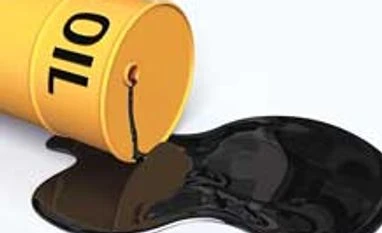Oil prices fell in Asia today on easing concerns about supply disruptions arising out of conflicts in Ukraine and Iraq, analysts said.
US benchmark West Texas Intermediate for September delivery eased 27 cents to $97.81 while Brent crude for September was down 22 cents to $104.46 in mid-morning trade.
Singapore's United Overseas Bank said, "Investors are taking a more optimistic view on Ukraine and Iraq although developments in these troubled regions remain on their radar."
Investors also cheered President Fuad Masum's acceptance of Haidar al-Abadi as the embattled country's next prime minister, in place of the much-criticised Nuri al-Maliki.
The jihadists have overrun forces controlled by al-Maliki's government in the country's north and west, and have declared a "caliphate" in those areas.
Disruptions in supply to neighbouring Turkey and Jordan have hit Iraq hard as it is heavily dependent on oil revenues while spending more to battle the Islamic State.
In Ukraine, concerns have eased about a Russian invasion into east Ukraine. Moscow said yesterday a humanitarian convoy it is dispatching into the conflict-torn zone will not involve its military.
Western nations have warned that the mission could be a cover for sending in troops into the area, which is controlled by pro-Russian militia.
Ukraine is a key conduit of Russian gas exports to Europe, and there are fears a full-blown conflict will disrupt supplies.
Desmond Chua, market analyst at CMC Markets in Singapore, said markets were buoyed by the "uncanny coincidences of de-escalating crises in the trifecta hotspots," referring to east Ukraine, Iraq and the Gaza Strip.
US benchmark West Texas Intermediate for September delivery eased 27 cents to $97.81 while Brent crude for September was down 22 cents to $104.46 in mid-morning trade.
Singapore's United Overseas Bank said, "Investors are taking a more optimistic view on Ukraine and Iraq although developments in these troubled regions remain on their radar."
More From This Section
In Iraq, the OPEC cartel's number-two producer, US air strikes that began last week have buoyed Kurdish forces who are battling to turn the tide on two months of expansion in the north by Islamic State extremists.
Investors also cheered President Fuad Masum's acceptance of Haidar al-Abadi as the embattled country's next prime minister, in place of the much-criticised Nuri al-Maliki.
The jihadists have overrun forces controlled by al-Maliki's government in the country's north and west, and have declared a "caliphate" in those areas.
Disruptions in supply to neighbouring Turkey and Jordan have hit Iraq hard as it is heavily dependent on oil revenues while spending more to battle the Islamic State.
In Ukraine, concerns have eased about a Russian invasion into east Ukraine. Moscow said yesterday a humanitarian convoy it is dispatching into the conflict-torn zone will not involve its military.
Western nations have warned that the mission could be a cover for sending in troops into the area, which is controlled by pro-Russian militia.
Ukraine is a key conduit of Russian gas exports to Europe, and there are fears a full-blown conflict will disrupt supplies.
Desmond Chua, market analyst at CMC Markets in Singapore, said markets were buoyed by the "uncanny coincidences of de-escalating crises in the trifecta hotspots," referring to east Ukraine, Iraq and the Gaza Strip.
)